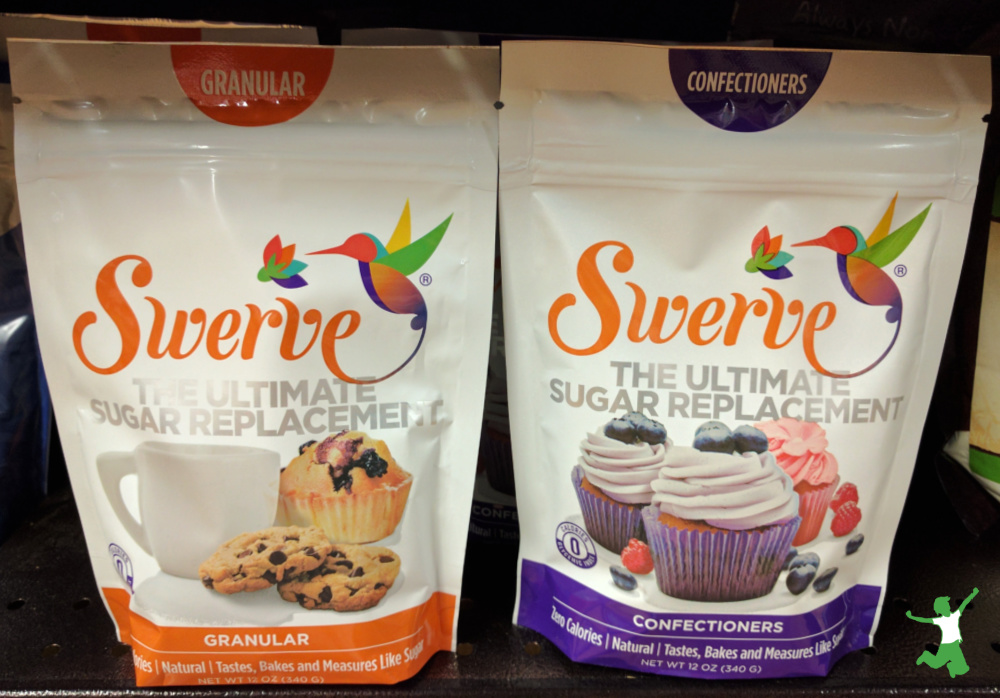
Table of Contents[Hide][Show]
Using erythritol as an alternative sweetener is associated with increased risk for heart attacks and strokes according to a large, 4000+ person study by the Cleveland Clinic.

For almost 10 years, I have warned my readers to avoid erythritol found in a dizzying array of low-carb foods and alternative sweeteners like Swerve.
This low-calorie sweetener is very popular with those following the keto diet, Trim Healthy Mama or similar low-carb protocols to lose weight.
Erythritol is perhaps the most popular of the sugar alcohols, which contribute to gut imbalance among other potential harms to beneficial intestinal flora.
This nail in the coffin for erythritol once again demonstrates that there is no free lunch when you are trying to change your diet to get healthy.
Fake sweeteners like erythritol and chemical cousins like diarrhea-inducing xylitol just aren’t going to get you there over the long-term.
In other words, you can’t have your artificially sweetened flourless cake and eat it too.
You need to eat REAL FOOD for health…that includes whole sweeteners like raw honey or maple syrup if you wish to enjoy something sweet on occasion!
Let’s look at the details of this damning study on erythritol.
You would be well advised to go to your pantry and immediately toss anything in there that contains it!
Large Study with over 4000 Participants
The Cleveland Clinic conducted the study with the peer-reviewed journal Nature Medicine publishing the finding in February 2023. (1)
The study included more than 4,000 participants in America and Europe. (2)
The findings revealed that people with higher blood erythritol levels had a greater risk of suffering a heart attack, stroke, or even death.
They also examined the effects of adding erythritol to either whole blood or isolated platelets, which are cell fragments that clump together to stop bleeding and contribute to blood clots. Results revealed that erythritol made platelets easier to activate and form a clot. Pre-clinical studies confirmed ingestion of erythritol heightened clot formation [emphasis mine]. (3)
Correlation or Causation?
The large study on the negative health effects of blood level of erythritol shows an associated risk and is not double-blind causative research.
However, in the wise words of the Florida Surgeon General Dr. Joseph Ladapo,
Just because correlation does not equal causation does not mean we should abandon common sense!
Ignoring this research because the link is associative is very short-sighted.
Conclusions
Per the Cleveland Clinic, erythritol is about 70 percent as sweet as sugar.
However, when consumed, the intestinal tract has difficulty metabolizing the product.
This means that some ends up in the blood, where it doesn’t belong.
The Cleveland Clinic press release described the scenario as follows:
Instead, it [erythritol] goes into the bloodstream and leaves the body mainly through urine. The human body creates low amounts of erythritol naturally, so any additional consumption can accumulate.
Predictably, Calorie Control Council Executive Director Robert Rankin downplayed the study’s results as “contrary to decades of scientific research showing reduced-calorie sweeteners like erythritol are safe, as evidenced by global regulatory permissions for their use in foods and beverages.” (4)
Hmmm. I don’t think that “global regulatory permissions” is an indicator that something is safe at all!
As one of many examples of how ludicrous this statement is, consider that the FDA allows aluminum in cheese processing. Is this a guarantee of aluminum’s safety in the human diet?
Hardly not!
Wise consumers who have been eating erythritol would do well to eliminate this artificial sweetener from their diet. This would include related sugar alcohols such as xylitol, sorbitol, isomalt, mannitol, lactitol, and maltitol among a few others.
(1) The artificial sweetener erythritol and cardiovascular event risk
(2, 3) Cleveland Clinic Study Finds Common Artificial Sweetener Linked to Higher Rates of Heart Attack and Stroke
(4) Study: Erythritol Sweetener Linked to Higher Risk of Heart Attack and Stroke